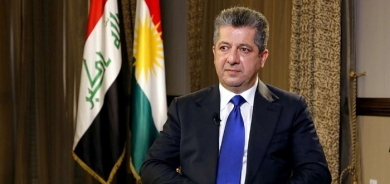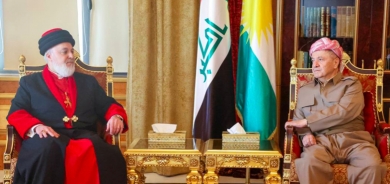President Barzani’s Visit and Washington’s Hedging Strategy

It is relatively uncommon for a political figure, even a prominent one, who is not the leader of an independent country to be granted extensive time with the deputy secretary of state. It is even more unusual to have access to the vice president. And it is truly extraordinary to have a session with either the secretary of state or the president, much less both officials.
That Obama administration leaders would treat President Barzani as they would an important head of state suggests that Washington is very uneasy about developments in Iraq and the surrounding region. The official U.S. policy still emphasizes support for a united Iraq with a strong central government in Baghdad, and administration officials urged Barzani to “re-engage” with Baghdad. But the administration’s other actions during his visit point to the emergence of a “hedging” strategy.
It is hardly a secret within the U.S. foreign policy community that Washington is increasingly disenchanted with Prime Minister Nouri al-Maliki. Not only are there worries about the Maliki government’s growing authoritarian tendencies, but U.S. officials are extremely disturbed by that government’s cozy relations with Tehran. Baghdad’s vocal opposition to stronger sanctions against Iran, and the blunt statement from Iraq’s foreign minister opposing any outside support for Syrian opposition forces seeking to overthrow the regime of Iran’s ally, Bashar al-Assad, came as a bitter disappointment to the Obama administration.
Given those developments, the red-carpet treatment afforded to President Barzani served two purposes. First, it conveyed to Baghdad that the United States has options other than continued loyalty to the Maliki government. Second, it conveyed to the KRG that the Obama administration is not only willing but eager to expand relations with Arbil—even if some of those cooperative measures might come at Baghdad’s expense.
There appear to be several reasons for Washington’s growing fondness for the KRG. One is a long-standing factor. Throughout the U.S. military presence in Iraq following the 2003 invasion, the Kurdish population was the one faction that was consistently and enthusiastically pro-American.
Other factors are somewhat more recent. U.S. governmental and business leaders increasingly recognize that Iraqi Kurdistan offers some very appealing opportunities for American firms. It was significant that the launching of the new U.S.-Kurdistan Business Council was timed to coincide with President Barzani’s visit. Indeed, he delivered the keynote address at the first USKBC event. The Obama administration, still battling the worst economic recession in the United States in more than 30 years, is eager to pursue new economic opportunities overseas. And Iraqi Kurdistan is one of the more impressive arenas for trade and investment in the entire Middle East.
But it is not just economics that underlie Washington’s renewed interest in the Kurdish region. Security interests and concerns are also heavily involved. It was probably no coincidence that just two weeks after President Barzani’s visit, General James Jones, President Obama’s former national security adviser, became the initial head of the USKBC.
Washington might prefer to have a united Iraq and deal primarily with Baghdad, but the Maliki government’s uncooperative behavior is causing U.S. policy makers to rethink matters. Administration leaders appear to be developing a “Plan B,” in which political and security relations with Arbil could become far more important and prominent than in the past. President Barzani’s visit may have been the first major step in that process.
Ted Galen Carpenter, a senior fellow at the Cato Institute, is the author of eight books on international affairs and is a member of the editorial board of Mediterranean Quarterly.

 Ted Galen Carpenter
Ted Galen Carpenter






